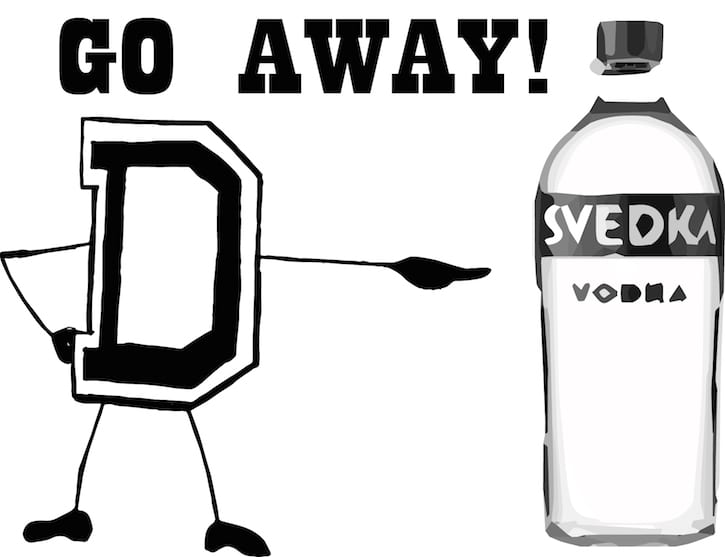Near the end of January, Dartmouth College enacted a new policy banning hard liquor on its campus. This policy was implemented in response to several alcohol-related problems at the school, primarily those regarding fraternity hazing, sexual assault and hospitalization due to alcohol. The aim of banning hard liquor on campus is to help combat the risk of these problems arising within the Dartmouth student body, and extreme intoxication is very often a factor – not simply at Dartmouth, but at similar institutions as well. While these issues do not exist solely at Dartmouth, the school is among the first to offer this particular solution, and it seems unlikely many other schools will follow its lead. Although some institutions, including St. Olaf, have an entirely dry campus policy, very few with a policy that allows hard liquor have attempted to change that.
As a means of prevention, an absolute ban on alcohol is generally a misguided effort, especially when the banned actions are things primarily done outside of the view of the school. In the example of hazing, not only are many of the participants likely underage, making the school’s policy less substantial as a connection to the law, but drinking is likely done within the fraternity’s housing. Dartmouth’s new policy may lead some to drink less, but more likely it will simply encourage drinking in secret for fear of being caught. Not only will the instances of extreme drinking be less visible because the drinkers will try to mask their actions, but those who are intoxicated to the point of harming themselves or others are less likely to seek help. The same premise applies to instances of sexual assault, in that many who are involved may be reluctant to share their stories – or important details – out of fear the school will punish them.
Many of the problems related to a drinking ban are easily observable in schools with such a policy, such as St. Olaf. Obviously St. Olaf culture differs from Dartmouth culture in many ways and St. Olaf’s long-established policy likely has a different impact than one very recently enacted, but the underlying nature of the student body is probably similar through virtue of their students being human. It is hardly a secret to anyone on campus that many St. Olaf students do consume alcohol, and many of those students are underage. It may or may not be beneficial to discuss the dangers of underage drinking, but if we accept that it is an essentially guaranteed phenomenon regardless of the campus policy or the law, we can find ways to make it safer and prevent the scandals Dartmouth is reacting to. While an all-encompassing, divisive solution to the perils of extreme intoxication among college students is impossible to mandate, there are ways to offer more safety to students.
As mentioned above, problems arise when students are afraid to admit their intoxication. At least at St. Olaf, the policy of medical amnesty is helpful in combatting this sentiment, but many still will “pre-game” or drink a lot in small groups before going somewhere rather than drinking at the destination. This process is not necessarily wholly damaging in itself, but a need to get immediately drunk, especially without proper education, may lead to students consuming too much at once and becoming more intoxicated than they intended.
Experiences with alcohol, especially for those new to college, can be formative and if those experiences establish drinking as something illicit, that attitude may persist past college.
Dartmouth’s new policy and St. Olaf’s dry campus policy are both attempts focused on helping students by preventing them from making regrettable decisions. Both have a respectable sentiment, but the issue lies in those policies that try to eliminate drinking altogether. Every college will have a drinking culture and rules against alcohol simply change the dynamic of that culture.
Conlan Campbell ’18 [email protected] is from Burnsville, Minn. His major is undecided.
Graphic Credit: ETHAN BOOTE/MANITOU MESSENGER



